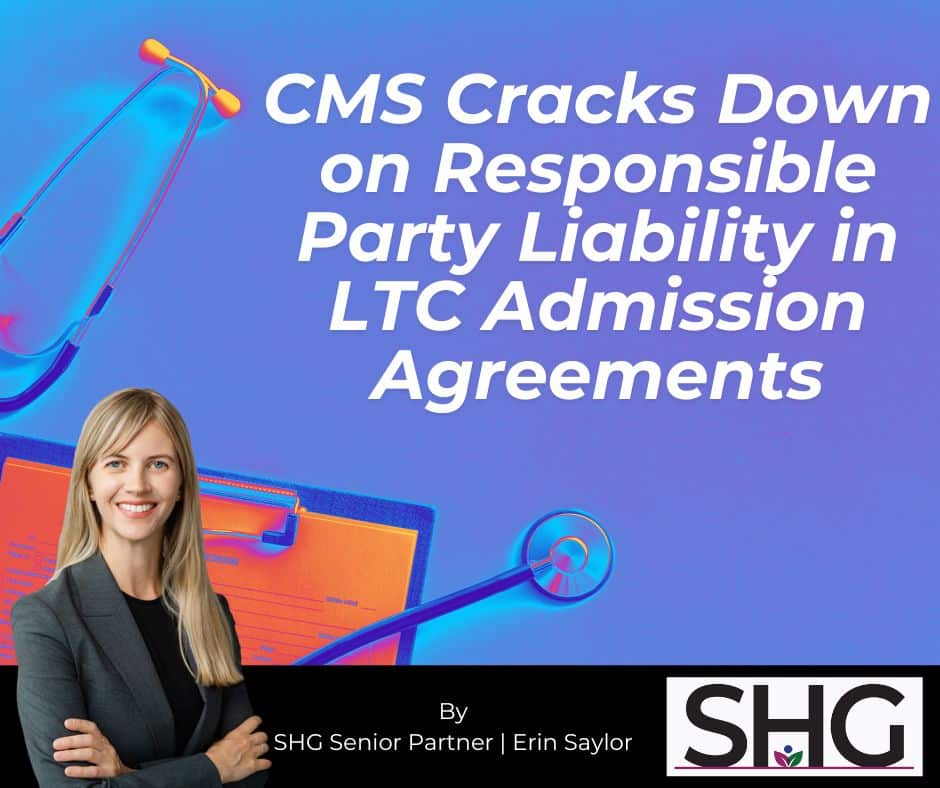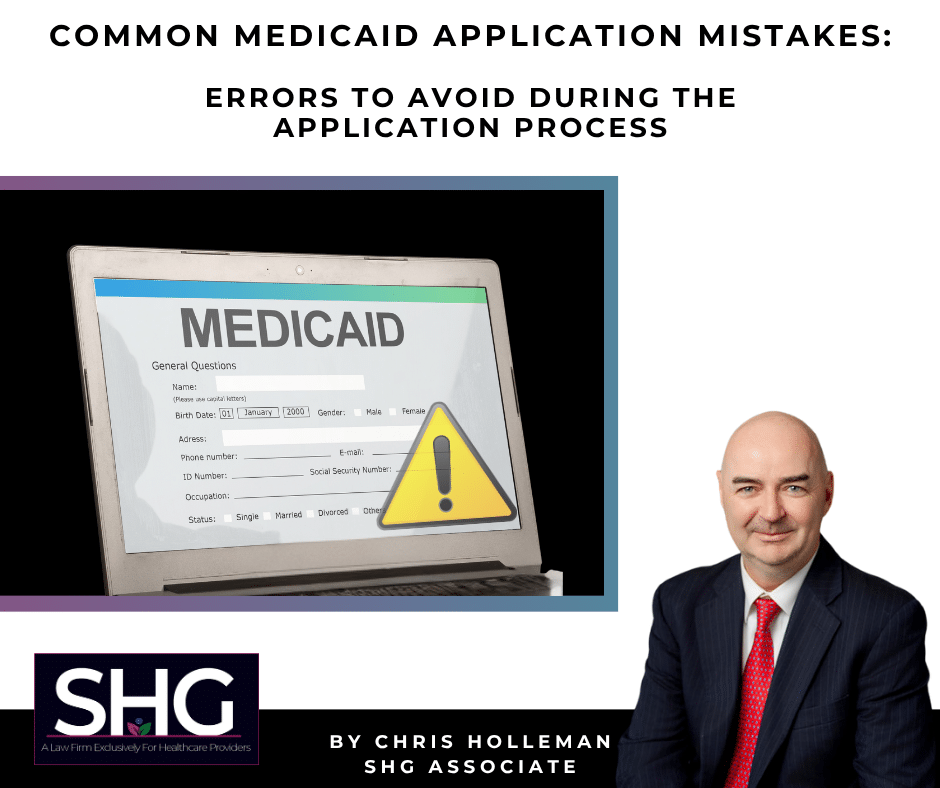A nursing facility that participates in the Medicaid or Medicare programs may not require a third party to guarantee payment for a resident’s admission or continued stay. However, facilities are allowed to require a resident representative who has legal access to a resident’s income or resources to sign a contract to provide payment to the facility from the resident’s income or resources, without incurring personal financial liability.
But what happens if the resident representative fails to use the resident’s income and assets to pay for the resident’s care? Or refuses to take the steps needed to get the resident approved for Medicaid? Can the resident representative be held personally responsible for the facility’s damages under the contract?
Some Courts have said yes, and some LTC admission contracts include language advising responsible parties they could be held personally liable if they fail to perform their obligations under the agreement.
But new surveyor guidelines from CMS say that effective March 24, 2025, no such language will be allowed in admission agreements.
In the Memorandum Summary, originally released November 18, 2024 and revised January 15, 2025, CMS details its interpretation of what constitutes a prohibited “third-party guarantee of payment” when it comes to contractual language. It says that the contract does not need to specifically reference a “guarantee” to be non-compliant; that “[a]ny language contained in an agreement that seeks to hold a third party personally responsible for paying the facility would violate this requirement.”
Does this include financial liability for a responsible party’s failure to perform their own obligations under the contract? According to CMS it does. The release includes examples of non-compliant contractual language, including but not limited to:
- Language that holds both (1) the resident and (2) the representative or other individual jointly responsible for any sums due to the facility (however, language that holds the resident solely responsible without joining the representative is allowable).
- Language that holds the representative or other third-party individual personally liable for breach of an obligation in the agreement, such as (1) failing to apply for Medicaid in a timely and complete manner or (2) allowing someone other than a signatory to the agreement to spend the resident’s resources that would be used to pay the nursing home.
- Language that does not specifically mention a third-party guarantee but that implies the resident could be discharged if the representative does not voluntarily agree to personally pay to prevent the discharge.
- Language that holds the representative or other individual personally liable for any amounts not paid to the facility in a timely manner because the representative or other individual did not provide accurate financial information or notify the facility of changes in the resident’s financial information.
These examples indicate that any language in an admission contract – including warnings, disclaimers, notices – that in any way suggests that a responsible party could be financially liable to the facility for any breach of the agreement could be considered a violation.
LTC providers should review their admission documents for any language that could run afoul of the new guidance.
1 42 CFR § 483.15 (a)(3).
2 November 18, 2024 Memorandum Summary, available at: https://www.cms.gov/files/document/revised-
long-term-care-ltc-surveyor-guidance-significant-revisions-enhance-quality-and-oversight-ltc.pdf.
3 January 15, 2025 Memorandum Summary, available at: https://www.cms.gov/files/document/qso-25-12-
nh.pdf.






